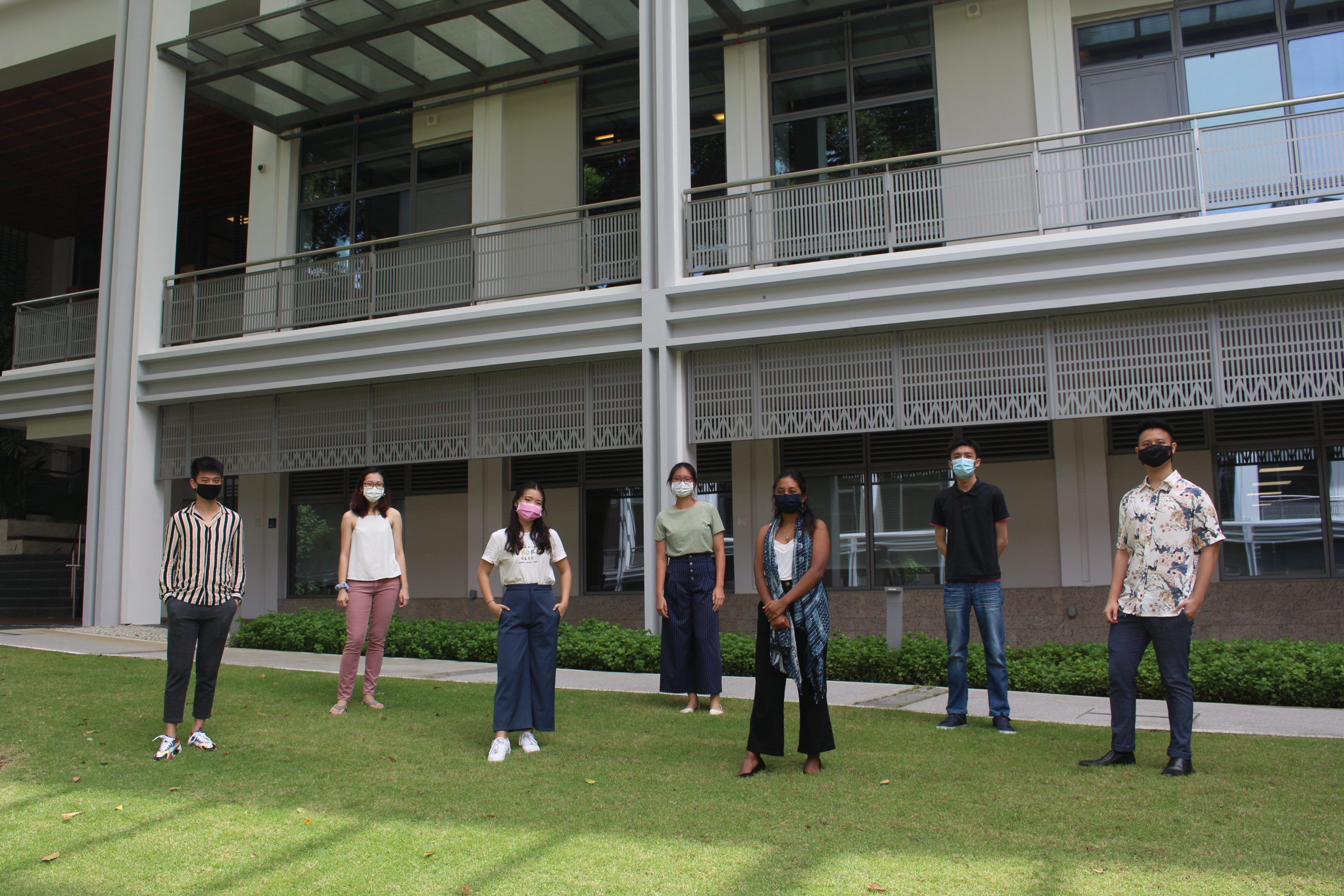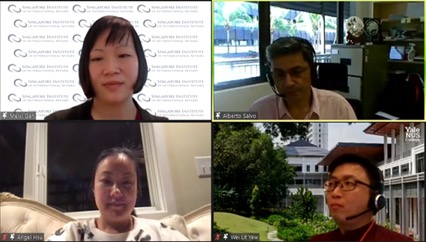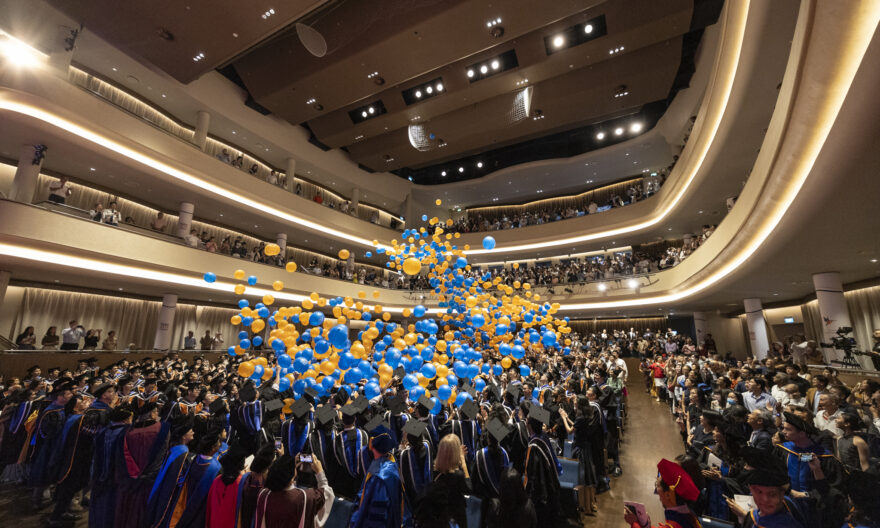Yale-NUS students organise virtual hackathon to foster cross-cultural collaboration in global policy
 Members of Roosevelt Network at Yale-NUS College. Image provided by Lim Tian Jiao.
Members of Roosevelt Network at Yale-NUS College. Image provided by Lim Tian Jiao.
Now more than ever, the Covid-19 pandemic has shown the world that the pressing issues affecting our time are connected over cultures and countries. Societal issues cannot be tackled in isolation; fixed, geographical lines have to be blurred to usher in problem-solving at a cross-cultural level.
Inspired by this belief, a team of students from Roosevelt Network at Yale-NUS College, a student-run think-tank, decided to assemble university undergraduates from across the world to devise critical solutions to today’s problems. The Yale x Yale-NUS Global Policy Hackathon was the outcome of months of deliberation, planning, and hard work. The event was co-organised with Yale University’s own Roosevelt Network, and held virtually from 19 to 28 February 2021.
On the team’s aims, Alisha Lavendra (Class of 2022), one of the organisers, shared, “The pandemic was shaping up to be a moment of change that would usher in a period of transformation for institutions. We saw a chance to explore how this moment would change policy and allow us to move further in tackling public health and climate change.”
Yale student Jen Huang (Class of 2022) , who is Co-President of Yale’s Roosevelt Network, shared that, amongst various tasks, her team helped recruit speakers and publicise the event to the Yale population. Echoing Alisha’s sentiment, Jen added, “We wanted students who are interested in policy to have the opportunity to learn more about this and receive feedback from experts in the field.”
This year, the hackathon centred on topics in public health and environmentalism. Judges for the hackathon comprised 11 distinguished experts in medicine, public health, environment, and energy studies.
Public health was chosen in light of renewed public anxiety and debate about vaccination. Participants who chose this topic crafted policy proposals in response to countering vaccine myths and hindered vaccination uptake. Meanwhile, in the environmental domain, the organising team recognised new presenting challenges after China pledged its commitment to net-zero emissions by 2060, specifically acknowledging potential trade-offs between fossil fuel dependency and employment in coal-dependent provinces. These participants formulated policies to alleviate negative impacts arising from the trade-off.
Lim Tian Jiao (Class of 2023), President of the Roosevelt Network at Yale-NUS, elaborated on the pertinence of the chosen topics. She explained, “While Singapore does not suffer from coal dependency in the same way that China and the United States do, we face similar issues in trying to reskill and relocate workers from the oil and gas industries as we embrace cleaner energy. In this way, we hope that learning more about these topics allows participants to reflect on their home countries’ contexts and challenges.”
Altogether, the hackathon rallied 170 undergraduate students from 26 schools in four countries.
Yale-NUS student Gabrielle Charis Tagtag (Class of 2023) was part of a team comprising students from various institutions. “As someone who is interested in policy but does not have enough experience in the field, the hackathon gave me the chance to dive right into writing actual policy proposals to address pressing issues.” Her team’s proposal, which focused on reducing vaccine hesitancy among Indigenous Peoples (IPs) in the Philippines, won first place.
Witnessing other teams’ presentations also taught Charis the importance of using multiple perspectives to achieve policy that is data- and science-driven, economically practical, and culturally sensitive.
To help participants grapple with the issues on a deeper level, the organising team put together a global policy conference, comprising workshops and presentations by research professionals. Yale-NUS Postdoctoral Fellow of Social Sciences (Comparative Politics and Environmental Studies) Dr Yew Wei Lit was one of the guest speakers on a panel conversation on 20 February 2021, titled ‘A Green Transition in a Post-Pandemic World’. Together with former Yale-NUS Assistant Professor of Social Sciences (Environmental Studies) Angel Hsu, the pair spoke of the urgency of pushing for a green transition.
 Dr Yew Wei Lit (bottom right) and Dr Angel Hsu (bottom left) speaking at a panel conversation about the green transition. The panel also comprised National University of Singapore (NUS) Associate Professor of Economics and Associate Director at Global Asia Institute Alberto Salvo. Image provided by Ng Jun Jie.
Dr Yew Wei Lit (bottom right) and Dr Angel Hsu (bottom left) speaking at a panel conversation about the green transition. The panel also comprised National University of Singapore (NUS) Associate Professor of Economics and Associate Director at Global Asia Institute Alberto Salvo. Image provided by Ng Jun Jie.
Dr Yew, who studies the politics of environmental activism, thoughtfully articulated, “Amidst the current pandemic, it’s tempting to put green issues on the backburner and slow down plans to transform the energy system. I hope to shine a light on the continual importance of civil society agency in driving progressive change. At this desperate and demoralising moment, whether it’s due to COVID-19 or the apocalyptic predictions associated with climate change, I hope to inject some optimism about the prospect of generating change through collective grassroots efforts.”
The organising team also managed to overcome some challenges in organising a wide-scale virtual event. “Hosting a large interactive event online comes with a steep learning curve in terms of maximising Zoom functions, exploring different channels of communication, and figuring out how to engage participants and allow them to connect across countries,” reflected Kaezeel Yeo (Class of 2023), who helped organise the event.
Yet as challenges emerge, so do new opportunities. “It’s quite amazing to have judges dialling in from both Singapore and the US, and different parts of the US at that — it definitely would not have been possible without virtual conferencing technology,” Tian Jiao shared delightedly.
As global issues become increasingly dynamic and multi-faceted, crafting future plans for cross-cultural collaboration remains at the top of the students’ agenda. The hackathon is the first of numerous opportunities to come and the team hopes to tap on similar opportunities in future.





